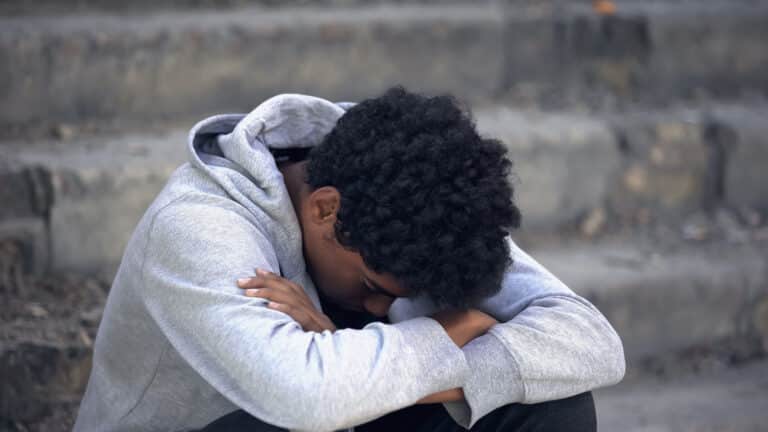
The aftermath of a breakup often leaves individuals grappling with a plethora of emotions and the daunting question: Is it possible to transition from lovers to friends?
Navigating this new terrain requires introspection and a candid evaluation of the past relationship.
Blindly rushing into friendship can muddy the healing process, whereas a gradual and thoughtful approach may lay the groundwork for a platonic bond to flourish.
Understanding the unique complexities of the former relationship is key to assessing whether a genuine friendship is feasible.
It’s vital to consider the emotional depth and the reasons behind the dissolution of the romantic bond.
Establishing friendship post-breakup is not a one-size-fits-all scenario; rather, it involves individual readiness, mutual respect, and appropriate boundaries.
Trust and open communication act as cornerstones for rebuilding this new phase of your connection.
Key Takeaways
- Emotional readiness and clear boundaries are crucial for post-breakup friendships.
- Mutual respect and open communication form the foundation of a platonic relationship after romance.
- A thoughtful approach tailored to individual circumstances can guide the transition from partners to friends.
Assessing the Breakup Context
Before approaching the idea of friendship post-breakup, it’s essential to consider the unique circumstances of the end of the relationship.
The following considerations can help you better understand the feasibility of maintaining a platonic bond.
Understanding Emotions
When a relationship ends, it’s common for a range of emotions to surface. These can include:
- Sadness: A natural response to loss, where you might feel a sense of longing for what once was.
- Anger: Feelings of frustration and injustice may emerge, especially if the breakup was not mutual or involved betrayal.
- Confusion: You may question what went wrong and grapple with mixed feelings about the past and future.
It’s important to recognize and process these emotions fully before attempting to establish a new dynamic.
One individual I worked with found that journaling helped clarify their feelings and intentions concerning their ex-partner.
Evaluating Relationship History
Next, carefully consider the history of your relationship:
- Trust and Love: Reflect on the levels of trust and love that were present. Was it a secure, mutually supportive bond?
- Patterns of Interaction: Think back to how you both managed conflict and whether respect was always upheld.
- Breakup Reasons: The reasons behind the breakup play a crucial role. If it involved deceit or emotional abuse, forging a friendship might not be feasible or healthy.
One couple I recall decided to remain friends after recognizing that while their love had shifted form, their shared history and respect for one another remained unshaken.
By reflecting on these aspects of your relationship and breakup, you give yourself the best foundation for considering if friendship is a possibility for you.
Rebuilding Friendship Foundations
Rekindling a friendship after a breakup requires thoughtful care.
You’ll need to redefine your relationship with clear boundaries, ensure open lines of communication, and manage expectations to foster a healthy, platonic connection.
Establishing New Boundaries
When transitioning from a romantic relationship to a friendship, it’s essential to redefine your boundaries. Setting new rules for your interactions can provide a sense of safety and respect for both parties.
The Role of Communication
Effective communication is the backbone of any friendship, especially after a breakup. I’ve found that starting a conversation with transparency and a willingness to listen can pave the way for a healthy dialogue.
Consider the following points for a successful conversation:
- Clearly express your feelings and needs.
- Be open to hearing your friend’s perspective without judgment.
This isn’t just about making your points heard but also about understanding the emotional landscape from both sides.
Managing Expectations
One critical aspect of sustaining a friendship post-breakup is aligning your expectations. Let’s address this head-on:
- Accept that the friendship will not be the same as the romantic relationship.
- Acknowledge that it may take time to adjust to this new dynamic.
Once you both have a mutual understanding of what you expect from each other as friends, you’ll likely find common ground to maintain a healthy connection.
Take it one step at a time, as you both navigate this new terrain together.
Navigating Social Dynamics
After a breakup, your social world can shift dramatically. It’s important to consider the feelings of mutual friends and be mindful of how you engage on social media.
Interacting with Mutual Friends
When you share friends with your ex, get-togethers can become a tightrope walk, balancing courtesy with your own emotional needs.
First and foremost, be open and honest with your friends. They’ll likely understand your situation and can help create an environment that’s comfortable for everyone involved. Here’s how you can maintain these friendships:
- Communicate Clearly: Let your mutual friends know your boundaries when it comes to discussing the breakup or your ex.
- Plan Ahead: If an event where your ex will be present is unavoidable, think about how you’ll handle the situation in advance. You might decide on a ‘signal’ with a friend if you need a moment away.
- Be Respectful: Acknowledge that your friends may also feel awkward—they value both of you. Find a balance that allows everyone to maintain their friendships without feeling pressured to choose sides.
Seeing your ex in social situations can stir up a mix of emotions, from sadness to jealousy.
It’s normal to feel this way, and time will often ease the tension. Give yourself permission to decline invitations if you’re not ready, and don’t feel guilty for taking care of your emotional health.
Social Media and Your Ex
Social media can make moving on from a breakup challenging due to the constant visibility of your ex’s life. Here are some strategies to help:
Adjust Your Social Media Settings
- Unfollow or mute: You can mute or unfollow your ex, which lets you avoid their updates without the finality of unfriending.
- Review your privacy settings: Consider who can see your posts, particularly if you share a lot of mutual friends with your ex.
Reflect Before You Post
- Avoid the Impulse to Vent: It may be tempting to share feelings about your breakup online, but remember that these posts can create unnecessary drama.
- Think About What You Share: Sharing posts aimed to make your ex jealous can backfire and prolong the healing process for both of you.
Throughout this transitional period, focus on positive interactions and remember that it’s okay to step back from social media if it becomes overwhelming.
Consider this time as an opportunity for personal growth and redefining your online presence in a way that reflects the new chapter you’re starting.
Moving Forward After a Breakup
After a breakup, your journey involves embracing personal growth and cautiously stepping into the world of new relationships. Healing from the past and nurturing a hopeful outlook are pivotal to moving forward.
Forgiveness and Personal Growth
It’s essential for your healing to forgive both yourself and your ex-partner. Forgiveness does not mean forgetting; it means acknowledging the past without letting it hold power over your future.
This act often catalyzes personal growth, where you learn from past romantic relationships, including marriage or less formal commitments.
Key steps in the grieving process
- Acknowledge all emotions without judgment.
- Allow yourself time to feel sadness, anger, and eventually, acceptance.
- Seek support from friends, family, or professionals if needed.
Use this period to understand your needs and desires more clearly. Develop new hobbies or revisit old ones. Set goals for your personal and professional life.
Reflect on past relationships to identify patterns that may need breaking. Embrace changes within yourself, and acknowledge your growth to celebrate your resilience.
Starting New Relationships
Cautious Beginnings
When considering new relationships, it’s important to move forward with intention and self-awareness. Ensure you’ve moved past your grieving process significantly before making room for someone new in your heart.
Checklist before starting a new relationship
- Emotionally available and past the grieving process.
- Clear about what you’re looking for in a partner and a relationship.
- Open to the idea of vulnerability with someone new.
Building New Bonds
Starting new relationships after a breakup means being open to the experience but maintaining a sense of self. Each new person is not just a potential partner but an opportunity for continued personal development and joy.
Tips for new relationships:
- Communicate your expectations and boundaries clearly.
- Take things slow and give space for mutual understanding to develop.
- Enjoy the process of getting to know someone; it doesn’t need to be rushed.
Navigating the transition from healing after a breakup to fostering new relationships can be delicate.
By prioritizing forgiveness and personal growth, you equip yourself with the tools to make healthier choices and build stronger, more fulfilling connections in the future.






